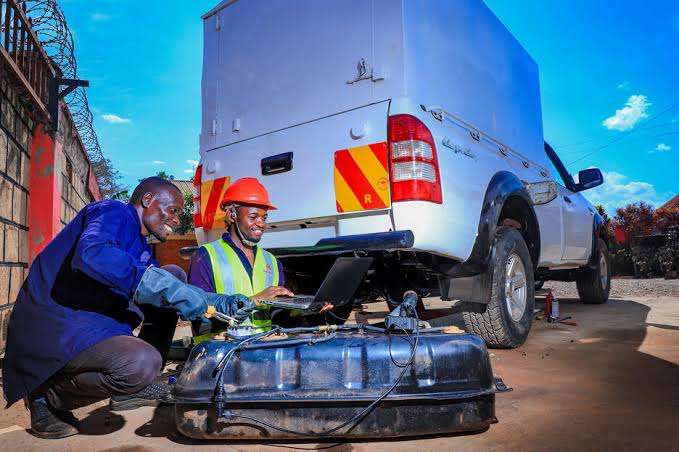The Milken Institute, in partnership with South African billionaire Dr. Patrice Motsepe, has launched a $2 million prize aimed at accelerating the use of artificial intelligence (AI) in Africa’s manufacturing sector.
Announced at the 2025 Milken Institute Global Conference in Los Angeles, the Milken-Motsepe Prize in AI and Manufacturing is the fourth edition in a growing series of innovation challenges backed by the Motsepe Foundation.
According to a report seen by Techparley, Dr. Emily Musil, Managing Director of Environmental and Social Innovation at the Milken Institute, announces the prize includes a $1 million grand prize and a total pool of $2 million in equity-free support.
“We’re excited to see what bold entrepreneurs are doing for the African manufacturing sector to harness the power of AI and other advanced technologies to improve the supply chain in Africa,” said Dr. Emily Musil.
What the Prize Will Fund
Organisers say the prize seeks to address Africa’s chronic underperformance in manufacturing. The prize will support AI-driven solutions designed to enhance production efficiency, reduce waste, and localise value chains.
To qualify, proposals must:
- Use AI, smart-factory tools, or data analytics to improve efficiency and localise production;
- Expand access to essential goods such as housing materials, food, or medical equipment;
- Create meaningful employment while boosting Africa’s export competitiveness.
Eligible proposals must also promote job creation and improve access to critical goods such as food, healthcare equipment, and affordable building materials.
Applications for the Milken-Motsepe Prize in AI and Manufacturing are open until July 31, 2025. Finalists will receive mentorship, technical assistance, and non-dilutive funding to scale their innovations.
While global applicants are encouraged, the organisers emphasise that the core objective remains solving problems specific to African economies.
About Milken-Motsepe Innovation Prize
The Milken-Motsepe Innovation Prize series was first launched in 2021 as a joint initiative of the Motsepe Foundation, and the Milken Institute.
Unlike traditional grants or venture capital funding, the prizes are equity-free and structured to support both early-stage innovators and growth-stage entrepreneurs.
Previous editions of the Milken-Motsepe Prize have funded over 50 startups and impacted more than 530,000 lives through solutions in agritech, clean energy, and finance.
Why it matters
As global interest in AI surges, the prize is seen as a timely intervention to aid technology and local development goals in Africa. Analysts say the initiative will only succeed if supported by enabling infrastructure, and policy frameworks.
According to experts, the prize series is designed to spur practical, scalable solutions in sectors that are key to sustainable development across Africa.
Talking Points
It is encouraging to see a $2 million equity-free prize focused on AI and manufacturing, a sector long overlooked in Africa’s digital transformation agenda.
By targeting AI-powered solutions that localise production and strengthen supply chains, the Milken-Motsepe Prize addresses a critical gap in Africa’s economic development: the lack of industrial self-sufficiency.
At Techparley, we view this as a timely and strategic initiative that aligns with Africa’s need for sustainable job creation and value chain localisation.
The emphasis on equity-free funding and real-world implementation gives African innovators a fair opportunity to build, test, and scale technologies without diluting ownership.
However, success will depend on more than good ideas. Participants must navigate regulatory bottlenecks, infrastructure challenges, and talent gaps, especially in AI engineering and industrial integration.
We also believe governments and private sector actors should actively monitor the outcomes of this prize and consider supporting winning innovations through procurement, incubation, or follow-on investment.
If implemented effectively, this initiative could catalyse a new generation of industrial startups in Africa, and shift the global perception of the continent from an importer of technology to a creator of it.





